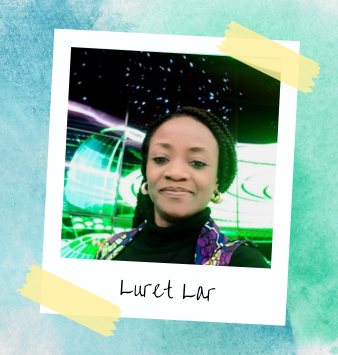From day one to your initial review – four top tips for a successful start to the PhD!
19 March 2024
By Luret Lar, School of Social Sciences
Following the excitement and relief of finishing my Masters in Social Sciences Research Methods (SSRM) in Social Policy, I anticipated a long break! However, I ended up progressing to the PhD approximately a month after submitting my Masters dissertation.
Amid uncertainties, but with optimism and passion about my research, I have the following four key learnings to share from the first few months of my PhD:
1) Avoid procrastination
Try to do as much as possible at the right time. Leaving important work meant to be completed today until tomorrow is a dicey alternative, especially when the inertia and fear of getting started tends to grip you. Time really does fly by! The period between starting in October and my December 11th submission sped by. It is also pertinent not to underestimate the paperwork, number of documents for submission, time for supervisory review and the upcoming Christmas break. Therefore, dedicated time to reading and writing is compulsory.
2) Lead the research but utilise supervisor experience
In taking ownership of your research, realise that supervisors are always there to support you. I wanted to bite off more than I could chew, but thankfully the experience and expertise of my supervisors provided suggestions and questions that kept me thinking. How was I to develop an intellectual project at such a short period, was my recurrent theme question for weeks on end. However, where I was reluctant and had limited confidence to take bold decisions, supervisors patiently guided me from an ambitious to a narrower and more feasible research plan that is achievable within the PhD timescale. Indeed, the invaluable support of supervisors is a priceless gift.
3) Utilise available support early
The Doctoral Academy is a very rich resource to engage with at this period. I recall my online Starting Out session and the mixed feelings that I had about starting. However, the breakout sessions calmed me down, knowing that my thoughts and ideas were like my peers. We all seemed to have the same anxieties and uncertainties. As I searched for training sessions and events to sign up for, some looked too early, but I am glad that I joined them because it not only helped me to populate my training needs analysis template but also built and strengthened my confidence and capacity, especially in writing. Furthermore, I met other PhD students, learnt about their research, networked, and got ideas for progressing my work through these interactions.
4) It is doable, so just do it!
Through the challenges, I knew I had to fulfil a satisfactory initial review. At the beginning it seemed daunting, isolating, and impossible. However, with perseverance and the outlined lived experience, I am glad that I did not give up and I did it. Therefore, my compass might be different from yours, but I hope that you learnt a thing or two from my experience to know that you can also do this!
- June 2024
- March 2024
- February 2024
- November 2023
- September 2023
- June 2023
- May 2023
- January 2023
- December 2022
- November 2022
- October 2022
- September 2022
- July 2022
- May 2022
- April 2022
- January 2022
- December 2021
- November 2021
- August 2021
- July 2021
- June 2021
- February 2021
- January 2021
- November 2020
- October 2020
- September 2020
- August 2020
- July 2020
- June 2020
- April 2020
- March 2020
- February 2020
- January 2020
- December 2019
- November 2019
- October 2019
- September 2019
- August 2019
- July 2019
- June 2019
- May 2019
- April 2019
- March 2019
- February 2019
- January 2019
- December 2018
- November 2018
- October 2018
- September 2018
- August 2018
- July 2018
- June 2018
- May 2018
- April 2018
- March 2018
- February 2018
- Biosciences
- Careers
- Conferences
- Development
- Doctoral Academy Champions
- Doctoral Academy team
- Events
- Facilities
- Funding
- Humanities
- Internships
- Introduction
- Mental Health
- PGR Journeys
- Politics
- Public Engagement
- Research
- Sciences
- Social Sciences
- Staff
- STEM
- Success Stories
- Top tips
- Training
- Uncategorized
- Wellbeing
- Working from home